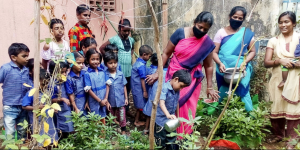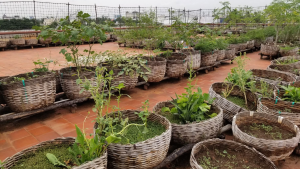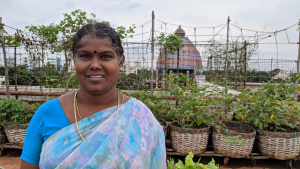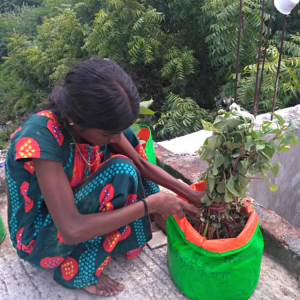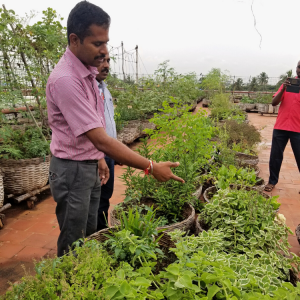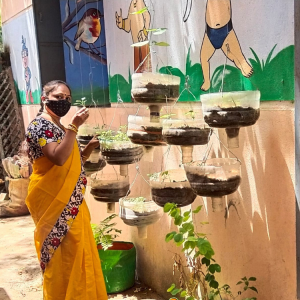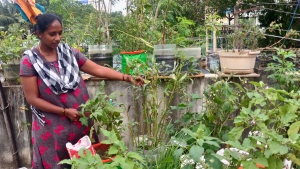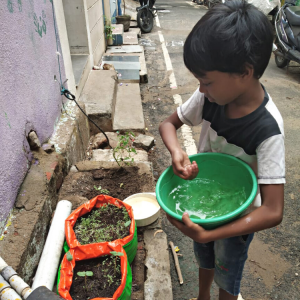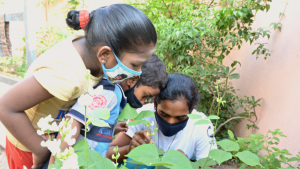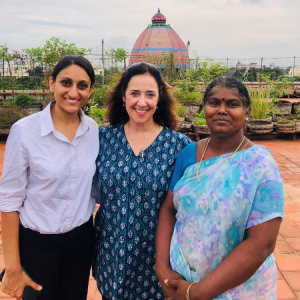About the Urban Farming Initiative
The Urban Farming Initiative was developed in partnership with the Chennai Resilience Center at Care Earth Trust to build local resilience to extreme heat while improving food security.
The initiative provides low-cost mobile vegetable garden kits that can be planted on rooftops or vacant urban spaces. For residents who do not own land, the garden kits offer nutritious food and reduce building temperatures through nature-based solutions.
The concept for the community garden kits program emerged during the COVID-19 pandemic when at-risk urban communities in Chennai experienced unexpected burdens from significant job loss, less mobility under lockdowns, and the consequent inability to afford food.
Since the project launched in 2020, the Climate Resilience Center and the Chennai Resilience Center have reached 32,984 residents. The initiative not only benefits households but has targeted resettlement colonies, homeless shelters, public schools, and anganwadis (daycare centers) to ensure the wider community has more equitable access to produce.
Extreme heat in Chennai, India
Over the past 10 years, Chennai has seen temperatures rise by 1.6°F. The city has experienced ‘urban heat island’ effects that can elevate local temperatures by 5–7 °F. Largely due to climate change and rapid, unplanned urbanization, Chennai’s natural ecosystems—such as trees—have experienced severe depletion and degradation that hamper their ability to cool the city. 1.5 million more Indians are projected to die each year from extreme heat due to climate change by 2100.
The benefits of urban nature based solutions
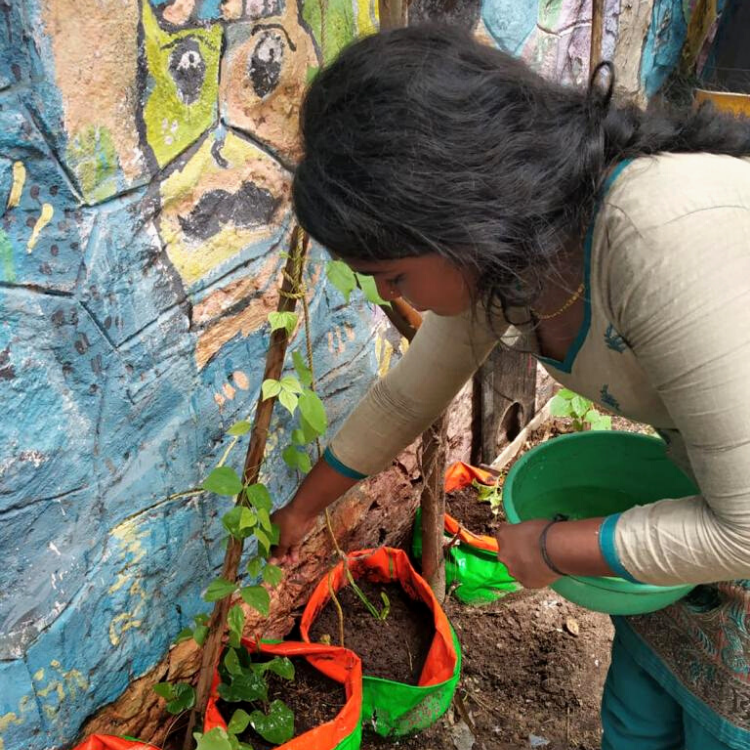
Tackling food insecurity
The kit includes five grow bags, eleven varieties of seeds, potting mixture, manure, and a biopesticide. The kits offer a do-it-yourself, low-cost and easily replicable method to grow produce in homes, schools, and other community spaces. The initiative improves access to nutritious food while setting the stage for long-term heat reduction in households and community centers.
A green cooling solution for homes and neighborhoods
Many of the garden kits are planted on the roofs of residential buildings, leading to the co-benefit of heat reduction. In 2022, the Chennai Resilience Center collaborated with the Climate Resilience Center and Earthonomic Engineers to measure the impact of the terrace gardens on building temperatures. The heat sensors revealed that the room below the garden is 2-3°C cooler than the room below the exposed terrace during the day.
As dangerous temperatures become more prevalent, introducing greenery on balconies, windowsills, and rooftops can help cool heat-prone households. The impact study will continue and has expanded to assess the impact of other forms of cool roofs in Chennai.
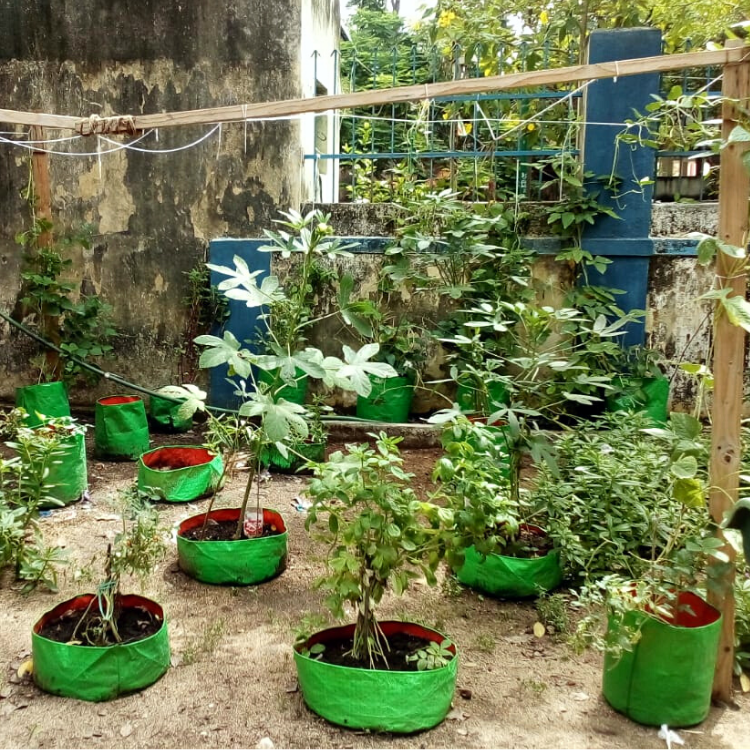
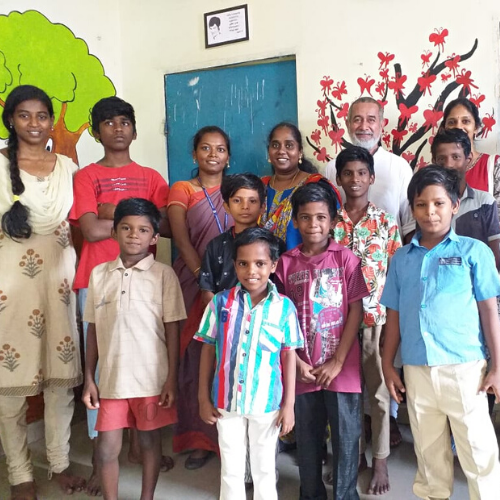
Community gardens with city-wide impact
The initiative relies on community leadership to expand and scale the program. As part of the program, all participating community centers and households have access to a WhatsApp group. In the chat, they can learn directly from the CUFI network about maintaining and growing gardens.
Further, women are empowered as community leaders and educators. Since many women are teachers and primary caregivers, they are trained to teach new households how to plant and care for their vegetable garden kits. The Chennai Resilience Centre partners with the Tamil Nadu Corporation for the Development of Women to build their capacity and knowledge to manage these gardens and earn a livelihood. Since the program launched, 234 women have received the trainings. As CUFI’s mobile vegetable garden kits program scales, the skills may be passed on from one generation to the next.
